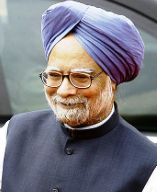 Prime Minister Manmohan Singh on Monday set up a committee to look into such matters pertaining to IT sector and research and development related activities.
Prime Minister Manmohan Singh on Monday set up a committee to look into such matters pertaining to IT sector and research and development related activities.
The panel, headed by former Central Board of Direct Taxes chairman N Rangachary, will be in addition to the one set up to review the General Anti-Avoidance Rules provisions to address the concerns of foreign investors.
The new four-member committee will hold consultations with stakeholders and related government departments to finalise the approach to taxation of Development Centres and suggest appropriate measures.
". . .it was felt that there is still a need to address some other issues relating to the taxation of the IT Sector such as the approach to taxation of Development Centres, tax treatment of 'onsite services' of domestic software firms, and also the issue of finalising the Safe Harbour provisions announced in Budget 2010," a PMO statement said.
Safe Harbour principles are international disclosure practices to check litigations in transfer pricing -- an accounting mechanism undertaken by MNCs to reduce tax liabilities.
"Safe Harbour provisions have the advantage of being a good risk mitigation measure, provide certainty to the tax payer," the statement said.
Earlier this month, the Prime Minister had set-up a panel headed by ICRIER chief and taxation expert Parthasarathi Shome to bring 'greater clarity' and prepare a roadmap for GAAR by September 30 for its implementation.
Rangachary is also a member of the GAAR panel.
The Rangachary panel will finalise the approach to taxation of Development Centres and the IT Sector by August 31, 2012.
It will also suggest clarifications and changes that may be needed to remove ambiguity and provide clarity on taxation of
the IT Sector.
The statement said the committee will finalise Safe Harbour Rules individually, sector-by-sector, in a staggered manner and submit draft provisions for three sectors/sub-activities each month starting September 30.
All Safe Harbour provisions expected to be finalised by December 31, 2012, it added.
"The overall goal is to have a fair tax system in line with best international practice which will promote India's software industry and promote India as a destination for investment and for establishment of Development Centres," it said.
Highlighting that India does not have a monopoly on Development Centres, the statement said, 'this is a highly competitive field with other countries wanting to grab a share of the pie. There is need for clarity on their taxation.'
Many multi-national firms carry out activities such as product development, analytical work and software development, through captive entities in India, it said.
They operate in a wide range of fields including software, IT hardware, Pharmaceutical R&D, automobile/scientific R&D, it said, adding that these are popularly called Development Centres.
Over 750 MNCs have such centres at over 1,100 locations in India.
The reason for this large concentration of Development Centres in India is the worldwide recognition of India as a place for cost competitive, high quality knowledge related work, the PMO statement said.
"Such Development Centres provide high quality jobs to our scientists, and indeed make India a global hub for such Knowledge Centres," it said.
Besides, Rangachary, the other members include Director General (Income Tax) Anita Kapur, Director of Income Tax (Transfer Pricing) Rashmi Sahani Saxena and any other officer from the Income Tax Department to be co-opted by the chairman.
Image: Prime Minister Manmohan Singh
© Copyright 2025 PTI. All rights reserved. Republication or redistribution of PTI content, including by framing or similar means, is expressly prohibited without the prior written consent.

 Prime Minister Manmohan Singh on Monday set up a committee to look into such matters pertaining to IT sector and research and development related activities.
Prime Minister Manmohan Singh on Monday set up a committee to look into such matters pertaining to IT sector and research and development related activities.